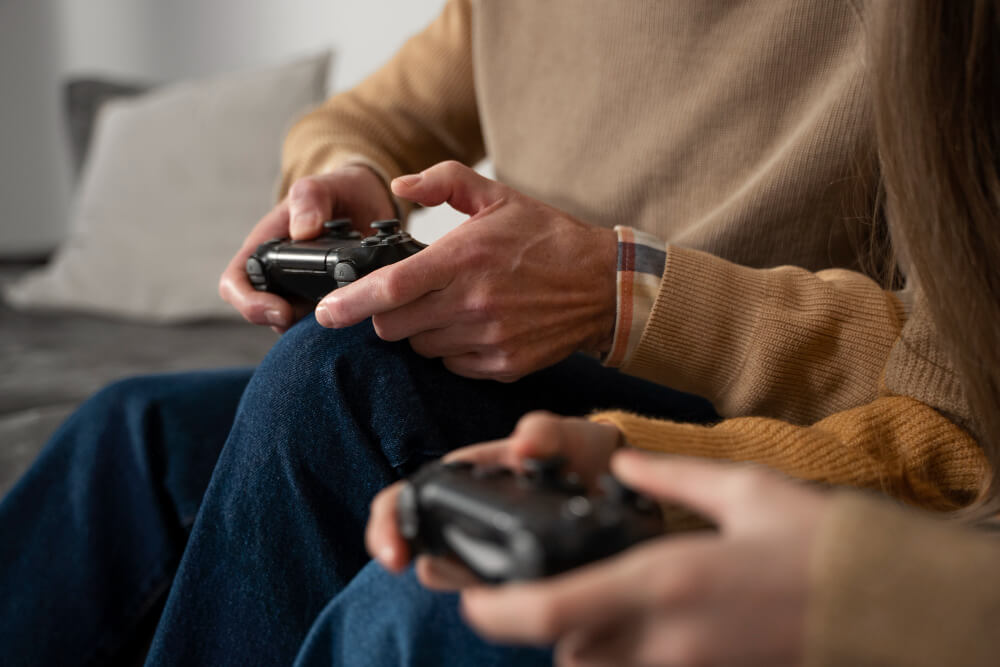– Updated on May 22, 2025
You likely cannot sue the government for video game addiction laws. However, there are other parties you may be able to hold liable for your child’s gaming addiction.
Are There Any Video Game Addiction Laws?
As of July 2024, no video game addiction laws exist on the books. However, video game developers and publishers are using a Supreme Court decision from 2011 to defend themselves against video game addiction lawsuits.
The Video Game Creators’ Defense
The developers claim that the 2011 Supreme Court decision in Brown et al. v. Entertainment Merchants Assn. et al. protects them from these lawsuits. In Brown v. Entertainment Merchants Assn., video game developers challenged a California law that restricted minors’ access to violent video games.
The Supreme Court ruled that video games, even violent ones, are protected by the First Amendment. The decision argued that the First Amendment did not stop at a new type of communication medium. The First Amendment extends from books, movies, and plays to video games as well.
The developers claim that these lawsuits are an attack on their First Amendment right to free speech.
The video game developers also claim that since consumers cannot sue authors and creators for addictive books and TV shows, they cannot sue video game companies for creating content that is “too entertaining.”
Has Your Child Been Affected by Video Game Addiction?
CALL US NOWWho Can I Sue for My Child’s Video Game Addiction?
If you can prove certain criteria, you may be able to sue the video game creators for their role in your child’s gaming addiction.
How to Qualify for a Video Game Addiction Lawsuit
Do you believe your child might be addicted to playing games like Roblox, Fortnite, Minecraft, Call of Duty, or Grand Theft Auto?
You may qualify for a gaming addiction case if your child’s excessive playing (several hours a day over a prolonged period of time) has caused serious consequences. Examples include if your child:
- Received a diagnosis of Attention-Deficit/Hyperactivity Disorder (ADD/ADHD) or oppositional defiant disorder (ODD)
- Received a diagnosis of a gaming addiction or gaming disorder
- Is displaying signs of irritability, depression, anxiety, aggression, or Gamer Rage
- Requires a 504 Plan or IEP (Individualized Education Plan) at school
- Needs to be homeschooled in order to play more frequently
- Dropped out of high school or college due to their gaming
- Has brain changes demonstrable through a CT scan or MRI
- Suffers from seizures
- Suffers from sleep deprivation psychosis
- Has computer vision syndrome
- Has high blood pressure (hypertension)
- Is obese
- Is severely neglecting their hygiene to game longer
- Sustained an orthopedic injury, such as trigger finger, tennis elbow, neck sprain or herniation, carpal tunnel syndrome, or de Quervain’s tenosynovitis (Gamer’s thumb)
- Has a criminal record related to the addiction (e.g., theft, robbery, or burglary)
- They still live at home because they cannot support themselves due to needing to play continuously
- They cannot work or can only work part-time because of their addiction to gaming
- Prioritizes playing video games over other hobbies, sports, or spending time with friends and family
- Is cursing in inappropriate places and settings
- Is cursing excessively
- Is displaying eating habit changes
- Is withdrawing socially (is not making friends or has lost friends due to prioritizing gaming)
Proving this can be difficult, but our law firm partners know how to establish it.
Has Your Child Been Affected by Video Game Addiction?
How Are Video Games Addictive?
There is no exact reason that video games are addictive. However, the complaints allege that addictive elements are baked into these games. Some addictive elements, such as dynamic difficulty adjustment algorithms (real-time difficulty changes based on a player’s ability level) and grinding (doing the same thing several times to get rewards, level up, or get more experience points), are present across most or all online games. However, the complaints do mention specific games and their corresponding addictive features:
- Minecraft allows children and teens worldwide to socialize, which can lead to dopamine lifts and be addictive. It also allows you to build worlds which children with ADHD can become hyperfocused on.
- Call of Duty has gun and attachment unlocks, game rewards that could be a form of “operant conditioning.” COD can also cause dopamine spikes, a known possible precursor to addiction.
They also allege that the developers use psychological tricks to keep kids playing longer and longer. Some of these psychological tricks include:
- Exploiting a child or teen’s FOMO: FOMO, or fear of missing out, can cause severe stress and anxiety and impact social identity. To mitigate potential FOMO, kids and teens may play longer to avoid missing something everyone else is experiencing.
- Sunk cost fallacy: The sunk cost fallacy is the idea that you cannot give up on a task because you have already spent considerable time or money on it. This could lead kids and teens to continue playing for hours to level up or complete a mission or quest.
- Dark patterns: Dark patterns are a function embedded in games that tricks players into making in-game purchases they didn’t want. An example of a dark pattern is a loot box, which allows players to purchase a mystery box (you open the box and receive a random virtual item you can use) with real-world money. This can encourage gambling, addictive behavior, and more in-game purchases.
Get Help Suing for Video Game Addiction
The Goldwater Law Firm wants to help you seek justice for your child through a video game addiction lawsuit. We partner with some of the biggest and most successful firms nationwide that can help you hold these gaming companies liable for the harm they caused.
For more information, see our Video Game Addiction Frequently Asked Questions or call us today for a free consultation. You don’t pay any upfront costs and only pay attorney’s fees if your video game addiction lawsuit lawyer recovers compensation for you and your family.

The Goldwater Law Firm is on mission to help as many people as possible with the fierce, compassionate legal aid only The Gold Standard of Injury Law can offer. If you suffered serious side effects or were diagnosed with an illness because of a defective drug or product, or if you were injured in an accident that wasn’t your fault, Attorney Bob Goldwater and the Goldwater Law Firm is ready to serve as your compassionate partner in the fight to seek the compensation and justice you deserve.
Share this post:



